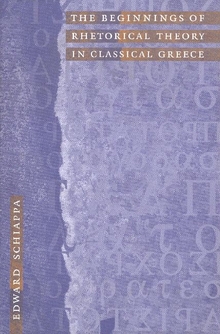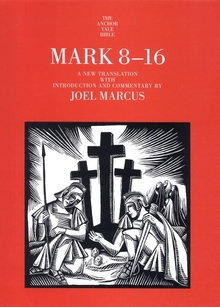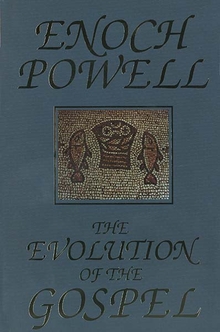The Beginnings of Rhetorical Theory in Classical Greece
WARNING
You are viewing an older version of the Yalebooks website. Please visit out new website with more updated information and a better user experience: https://www.yalebooks.com
Edward Schiappa
“This is a stimulating book. It argues from many points of detail to advance important claims about the intellectual development of the classical Greek world. . . . Its exploration of the available secondary literature, at least in English and German, is impressive. Classicists . . . are likely to engage mainly with the points of detail, but I hope that this book will lead us to engage with the bigger questions also.”—David C. Mirhady, Phoenix
"Edward Schiappa’s well researched, clearly written, and splendidly suggestive book marshals a vast array of evidence against the standard story of rhetoric’s invention. This work will surely prove of great value to a wide range of scholars interested in rhetoric, philosophy, and the history of humanistic education."—Steven Mailloux, University of California, Irvine
“I have learned a great deal from this well researched, clearly written, and splendidly suggestive book. It will be praised, debated, and much used.”—Steven Mailloux, University of California, Irvine
“A very important book, not only as a model of good sense in the world of hermeneutics, or as a model of good writing but as an important corrective to past histories of philosophy and the discipline of rhetoric.”—John Michael Crafton, Bryn Mawr Classical Review
“This is a very important book, not only as a model of good sense in the world of hermeneutics, or as a model of good writing but as an important corrective to past histories of philosophy and the discipline of rhetoric.”—Nita Krevans, Bryn Mawr Classical Review
“Beginnings has made a major contribution not only to the history of rhetoric but to our methods of research. . . . Schiappa has given us not only a better understanding of rhetoric’s origins as a theoretical construct, he has provided us with an heuristic to analyze subordinate concepts of rhetoric in order to further understand the discipline itself. Both for its original contribution to rhetorical theory in classical Greece and for a model of how to conduct similar, more localized inquiry into critical concepts, we extend to Beginnings, and its author, our praise and appreciation.”—Rhetoric Review
Publication Date: July 11, 1999








